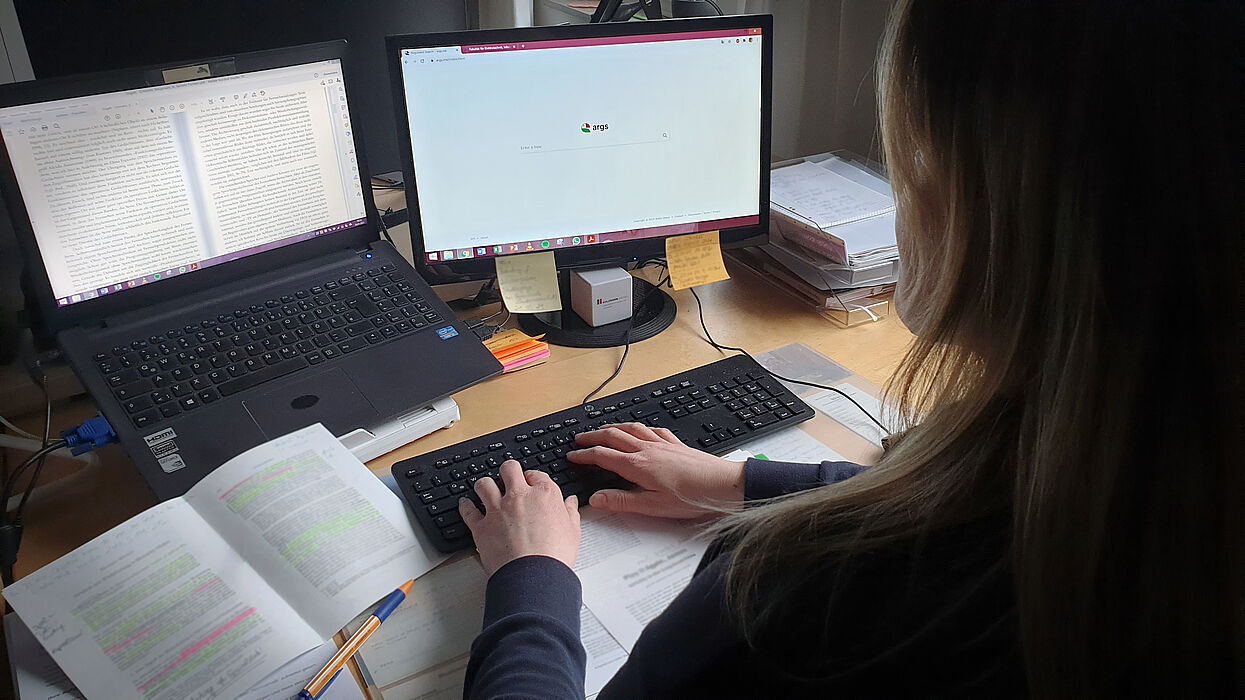Conceptually, an argument logically combines a claim with a set of reasons. In real-world text, however, arguments may be spread over several sentences, often intertwine multiple claims and reasons along with context information and rhetorical devices, and are inherently subjective. But is there a way to automatically summarize justifications in texts in an objective way in order to determine the core of the argument and to reproduce it concisely? This is the subject of a new project by Jun. Prof. Dr. Henning Wachsmuth (Paderborn University) and Jun.-Prof. Dr. Martin Potthast (Leipzig University) which will be funded by the German Research Foundation (DFG) within the priority program Robust Argumentation Machines (RATIO) starting in April 2021.
Search engines as a starting point for argument summaries
A starting point for the project "OASiS: Objective Argument Summarization in Search" is the search engine "args.me", developed by Jun.-Prof. Dr. Wachsmuth's working group in cooperation with the universities of Leipzig, Weimar and Halle, which has been online since 2017. This search engine opposes pro and con arguments from the web in response to user queries, in order to support self-determined opinion formation. A central aspect of „args.me“ is that short text snippets are generated to give searchers a quick overview of the diverse arguments.
Jun.-Prof. Dr. Wachsmuth explains what blank space his project fills: “Building upon existing argument mining techniques, the project centers around text summarization and style transfer. Both tasks are hard in general, but extensive research in the last years has shown potential in focused domains. For arguments, short content summaries have been generated successfully, yet without attention to the argument's reasoning. Style transfer even remains fully unstudied so far in computational argumentation. We aim to fill these gaps through the project's objectives.“
Intelligent algorithms to summarize and neutralize the style
After creating a dataset with countless hand-written argument summaries, novel algorithmic methods are to be developed that learn autonomously from the data to automatically summarize argumentative justifications and neutralize their style. This means that the summarized argumentation should be value-free, in the sense of reducing subjective views, and concise. „We expect to obtain new knowledge about what is important in summarizing subjective language such as argumentation“, explains Jun.-Prof. Dr. Potthast of his interest in knowledge, „the corpus enables more systematic research on argument generation, and the methods will be useful for various types of argumentation machines and other applications of computational argumentation.“ Thus, he and Jun.Prof. Dr. Wachsmuth will make their results freely available to benefit the goals of DFG priority program RATIO and automatic language processing research in general.
According to the current status, the DFG funding amounts to a total of approximately 642000€ and is scheduled for 36 months.



